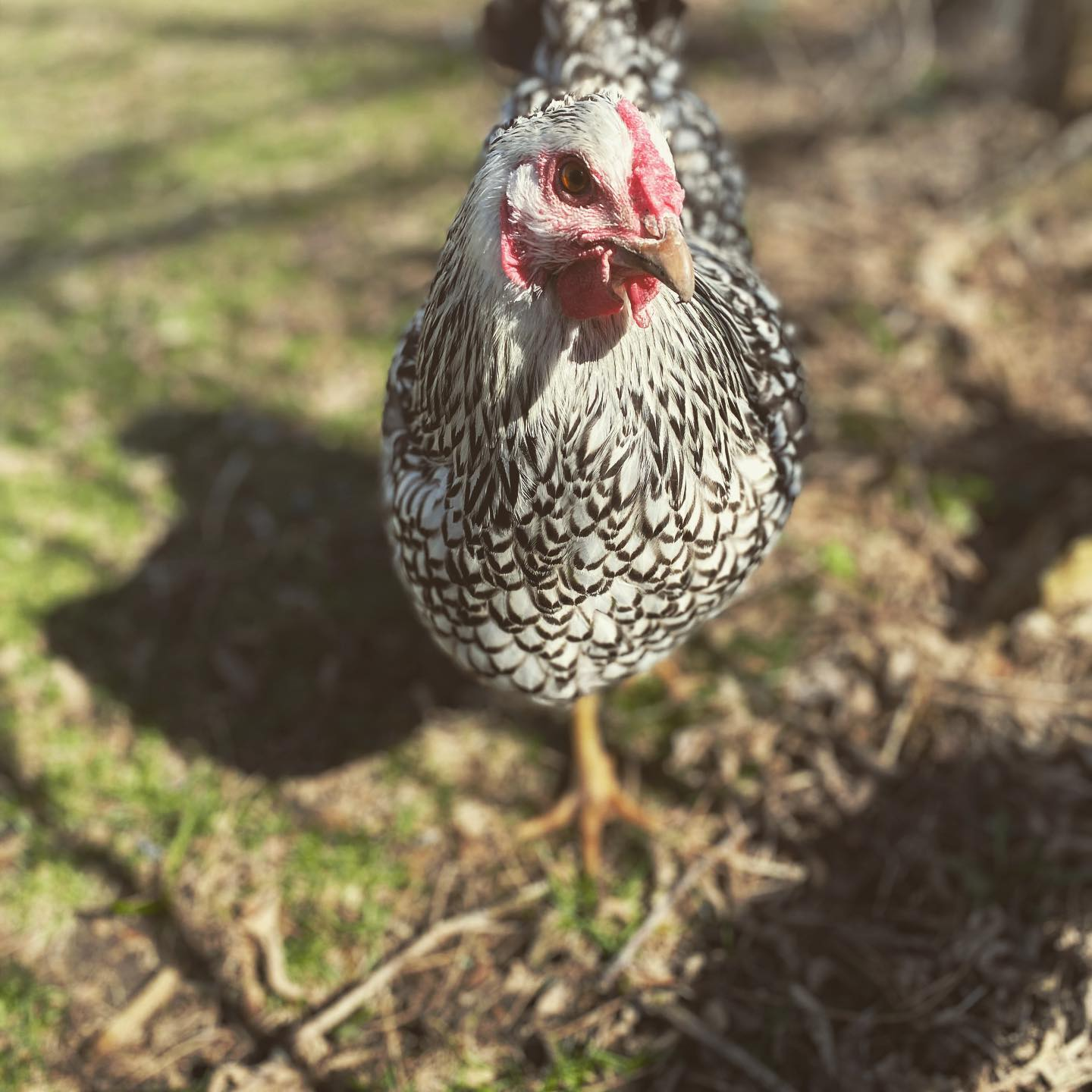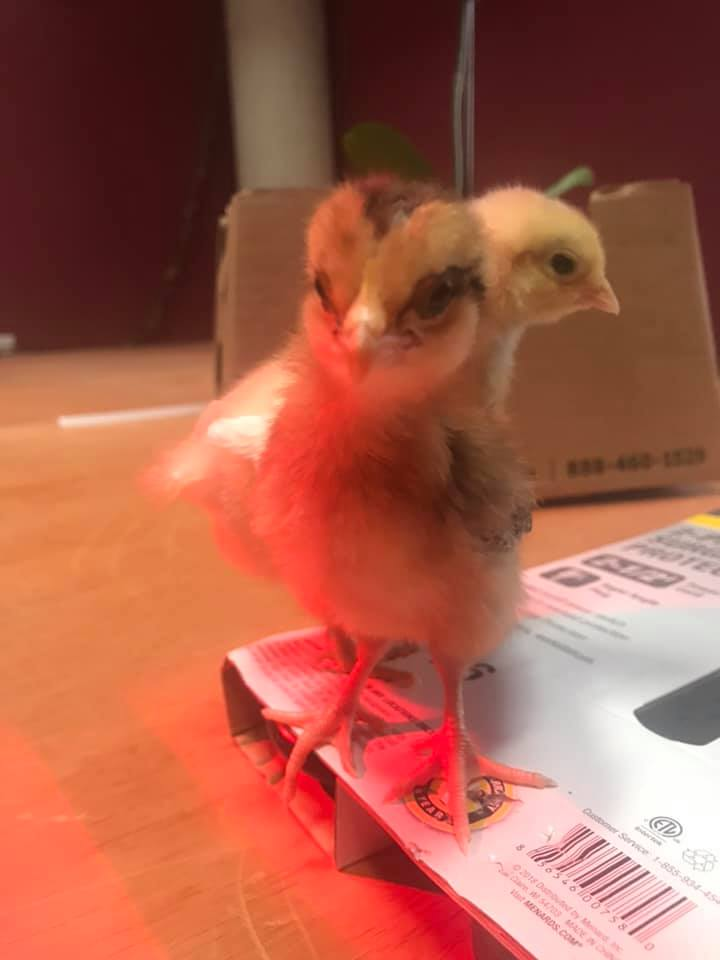 |
| Cardi B, a hilarious flock member |
I'm working on a grad school assignment around multimodal literacies, and when I paused to think about something that I've become quite literate in during my adulthood, chicken-keeping came to mind quite instantly. I'm grateful for this assignment because it has brought me back to this blog, which for years, I've been telling myself to come back to -- mostly because when I blog about sustainable living, I am more attune to it and because blogging gives me a reason to write, which without reason, I often put off even though it brings me peace and joy.
Today, I'm going to focus on advice that I would personally give to new chicken-keepers after 13 years of chicken-keeping with my husband on our little homestead right outside of Madison, Wisconsin.
Getting Started:
1. Obviously, check the ordinances for where you live. The last thing that want to do is purchase and fall in love with some chicks only to have to rehome them. Many cities are expanding their chicken allowances: Madison, Wisconsin now allows 8 hens.
2. Get the Marek's vaccine. I've posted about this before, but it is something you can easily add on. We lost an entire flock. Also, don't get chicks from an unknown source. This is often how chicken diseases are spread.
3. You'll need a brooder. Make it more spacious than you think because the chicks grown quickly! If you're adding to a flock, pullets need to be nearly the same size as your existing chickens in order for a safe transition.
4. Bond. Spend lots of time handling the chicks. The more time, the better for your long-term relationship and ease of handling for illness, vet appointments, and so on.
5. Make sure your coop is predator-proof. Get a hawk-proof netting. Use hardware cloth rather than chicken wire around your run. Put pavers or garden-beds around your run to prevent digging predators a way in.
Day-to-day maintenance:Beautiful Adele, with space to play.
1. Continue that bonding as often as time allows.
2. Did you know that you can freeze eggs if you get too many? You can! Simply crack them open into a Ball jar and write the number of eggs inside. Pop into the freezer. When your hens are molting or not producing eggs, these will come in handy!
3. Feed them healthy table scraps. Most veggies and fruit are okay, and the they not only make your chickens healthier, they also make the eggs more nutritious.
4. Make sure they have space to run and play. Whether that means that you give them time to run around your yard each day or you have an amazing run, healthy and happy hens need space.
5. Close your coops every night. No matter how secure that you think they are.
6. If it's too hot outside, make sure you're problem solving. You can spray down the outside of your coop with cold water. You can give your hens frozen veggies or fruit. Make sure there is shade and that you're giving your chickens enough water throughout the day.
Other things I've learned:
 |
| Day-old chicks |
- If you're anything like me, you don't want to contribute to the violent death of any animal. When
we order only female chickens, we must think about what's happening to the roosters. It's not great. If you have space, you can have a bachelor pad of roosters as long as there are no hens in sight. Something to consider! I, like most people, assumed that roosters could never coexist. - Chickens purr when cozied up on your lap, near sleep. How cool is that!
- Chickens tend to molt in the fall --> you'll notice that many of their feathers are gone. It is quite painful for them, so avoid picking them up during this time if possible.
- They dust-bathe. It's adorable.

